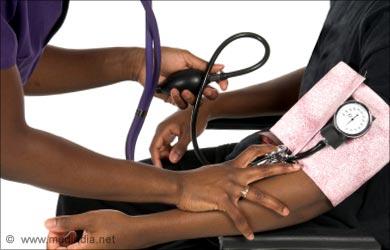How to manage biggest silent killer disease
It was his pastime, so he often left his Osolo Way home every 6.30am and returned between 7.45am and 8.15am.
But this day was different. As he got to 7 & 8 Junction from his home, he felt some chest pains and heart palpitations. He stopped. Two minutes later, the burning sensations stopped. He could at least continue his exercise.
One step, two steps more, he collapsed and was rushed to the hospital. On getting to the hospital at Ajao Estate, the doctor pronounced him dead.
An autopsy revealed that he had very high blood pressure but was probably not aware. At least there was no evidence he had been treating the disease before his death.
Several Nigerians have died from undiagnosed high blood pressure, which is today world’s biggest silent killer disease. The World Health Organisation (WHO) said 19.1 million Nigerian adults aged 30 to 79 years had hypertension in 2019. The Nigerian Heart Foundation (NHF) said in 2021 that about 76.2 million Nigerians were hypertensive.
Doctors say high blood pressure can cause stroke, cardiac arrest or heart failure. More than 20.5 million people die of heart disease every year, Augustine Odili president of the Nigerian Cardiac Society, said in 2024.
Healthcare workers call high blood pressure, also known as hypertension, the silent killer as it can go undetected for a long period of time and leads to death, according to the United States-based hospital, Columbia Doctors.
Hope is not lost
However, all hope is not lost for hypertension patients as they can live their normal lives without qualms, say health practitioners. But it requires some level of discipline and practices.
Health experts say people must do regular health checks to know when they have the disease. If confirmed that they have it, they must turn to affordable, locally available foods while changing their lifestyles.
According to health experts, Nigerians with the condition must eat more vegetables and grains while reducing their weight.
Adedeji Mary, a nutritionist, emphasised the importance of traditional Nigerian meals in supporting heart health.
She highlighted foods such as unripe plantain with vegetables, beans porridge, garden eggs, cucumbers, and whole grains like Ofada rice and oats as excellent choices for those managing high blood pressure.
“Unripe plantains, beans, and sweet potatoes are rich in potassium,” Mary explained. “Potassium helps regulate blood pressure by counteracting the effects of sodium and relaxing blood vessels,” she further said.
She also recommended pairing carbohydrates like sweet potatoes and plantains with vegetables such as pumpkin leaves (Ugu), bitter leaf, and water leaf for an added nutritional boost.
“These vegetables are packed with antioxidants and fiber, which are beneficial for heart health,” she said.
Mary added that garlic—though pungent—is another valuable addition for those who can tolerate it.
“Studies have shown that regular garlic consumption can significantly reduce both systolic and diastolic blood pressure,” she noted.
Chinonso Egemba, co-founder of Awadoc, also stressed the importance of lifestyle habits in blood pressure management. He advised patients to drink plenty of water, get sufficient sleep, and engage in regular physical activity to support cardiovascular health.
In further support of natural interventions, nutritionist Lucy Ellis and her team of researchers found that regular consumption of hibiscus flower (zobo) can lower the risk of cardiovascular diseases.
“Hibiscus showed stronger effects on systolic blood pressure,” Ellis said. “In some cases, the blood pressure-lowering effect of hibiscus was comparable to that of prescription medications.”
The findings from her research, published on PubMed, support the integration of hibiscus tea as a natural remedy for individuals with elevated blood pressure.
Foods, lifestyles to avoid
Egemba stressed the importance of avoiding alcohol, warning that “alcohol increases the risk of hypertension as it causes spikes in blood pressure.”
Adedeji, earlier quoted, advised cutting back on sugar and salt, explaining that “salt has been proven to increase the risk of hypertension due to its high sodium content.
Egemba added that limiting salty foods can help regulate blood pressure.
“Those with critical cases should not take more than 125 milligrams of salt daily — that’s less than half a teaspoon,” he said.
Other health experts recommended staying away from high-calorie and fried foods such as bread, pastries, cassava, and deep-fried snacks to support healthy blood pressure levels. (BusinessDay)


